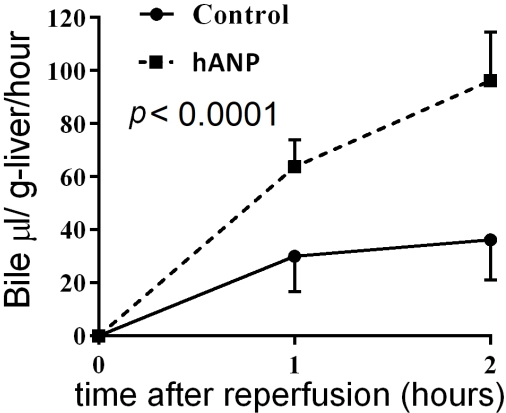Human Atrial Natriuretic Peptide (hANP) in Cold Storage of Donation after Cardiac Death Livers: A New Tool for Protecting Vascular Endothelia?
1Department of Surgery, Division of Hepato-Biliary-Pancreatic Surgery and Transplantation, Kyoto University, Kyoto, Japan
2Center for Anatomical, Pathological, and Forensic Medical Research, Kyoto University, Kyoto, Japan.
Meeting: 2018 American Transplant Congress
Abstract number: B25
Keywords: Donors, Drug interaction, Endothelin, Liver preservation, non-heart-beating
Session Information
Session Name: Poster Session B: Endothelial Cell Biology
Session Type: Poster Session
Date: Sunday, June 3, 2018
Session Time: 6:00pm-7:00pm
 Presentation Time: 6:00pm-7:00pm
Presentation Time: 6:00pm-7:00pm
Location: Hall 4EF
Aim: Current critical shortage of donor organs has led to acceptance of donation after cardiac death (DCD) livers for transplantation. Human atrial natriuretic peptide (hANP) is a cardiovascular hormone with its protective action to vascular endothelia. In this study, we investigated the effect of hANP in cold storage of DCD livers.
Methods: Male Wistar rats were exposed to 30-minute warm ischemia in situ induced by phrenotomy. Whole liver grafts were retrieved and preserved for 6 hours in UW solution at 4[deg]C, with or without 2.5 [micro]g/mL o fhANP supplementation. The grafts function was then evaluated by oxygenated ex vivo reperfusion at 37[deg]C for 2 hours.
Results: hANP supplementation resulted in significant reduction of release of AST (159.3±15.4 vs. 241.3±21.41IU/L, P˂0.001), as well as of portal-venous pressure (12.5±0.52 vs. 22.5±3.5 mmHg, P˂0.001,  ). mRNA expression of eNOS was up-regulated (P=0.01), whereas endothelin-1 was down-regulated (P=0.004) than in controls. These benefits were followed by greater bile production in hANP group (96.2±18.2 vs.36.2 ± 15.2 ml/g-liver/hour, P˂0.001,
). mRNA expression of eNOS was up-regulated (P=0.01), whereas endothelin-1 was down-regulated (P=0.004) than in controls. These benefits were followed by greater bile production in hANP group (96.2±18.2 vs.36.2 ± 15.2 ml/g-liver/hour, P˂0.001,  ). Morphologically, hepatocytes and sinusoidal endothelial cells were both better maintained by hANP (P=0.021). Silver staining revealed, that hANP well-preserved reticulin fibers in sinusoidal space (P=0.017).
). Morphologically, hepatocytes and sinusoidal endothelial cells were both better maintained by hANP (P=0.021). Silver staining revealed, that hANP well-preserved reticulin fibers in sinusoidal space (P=0.017).
Conclusion: Cold storage with hANP supplementation attenuated cold ischemia/warm reperfusion injury in DCD livers, thus suggesting a new possibility for utilizing DCD livers.
CITATION INFORMATION: Nigmet Y., Hata K., Okamura Y., Tamaki I., Tsuruyama T., Hirao H., Kubota T., Kusakabe J., Yoshikawa J., Goto T., Tajima T., Tanaka H., Uemoto S. Human Atrial Natriuretic Peptide (hANP) in Cold Storage of Donation after Cardiac Death Livers: A New Tool for Protecting Vascular Endothelia? Am J Transplant. 2017;17 (suppl 3).
To cite this abstract in AMA style:
Nigmet Y, Hata K, Okamura Y, Tamaki I, Tsuruyama T, Hirao H, Kubota T, Kusakabe J, Yoshikawa J, Goto T, Tajima T, Tanaka H, Uemoto S. Human Atrial Natriuretic Peptide (hANP) in Cold Storage of Donation after Cardiac Death Livers: A New Tool for Protecting Vascular Endothelia? [abstract]. https://atcmeetingabstracts.com/abstract/human-atrial-natriuretic-peptide-hanp-in-cold-storage-of-donation-after-cardiac-death-livers-a-new-tool-for-protecting-vascular-endothelia/. Accessed February 18, 2026.« Back to 2018 American Transplant Congress
